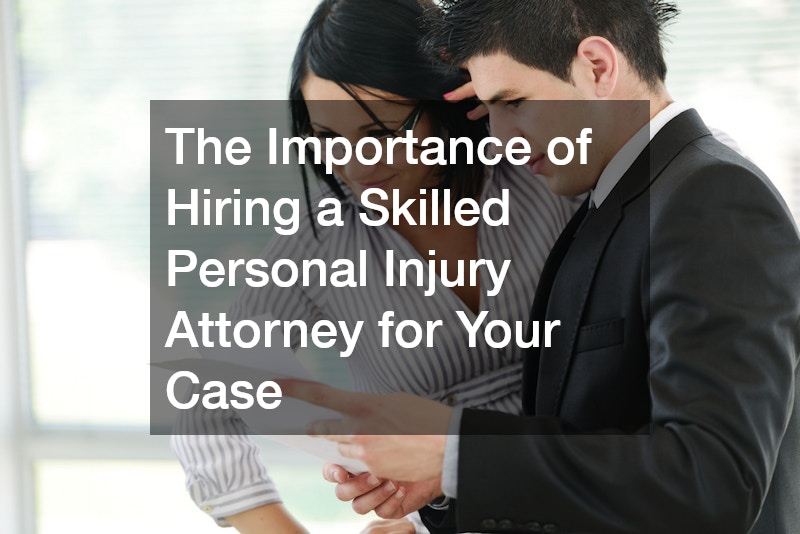
Working as a building contractor can be financially and spiritually rewarding as you turn designers’ and architects’ ideas into reality. However, this business can be fraught with risks. Power tools, vehicles, and building materials can expose you, your workers, and your customers to the risk of injury. Moreover, accidents can damage your equipment as well as the property of your customers and their neighbors.
As a result, contractor protection can make the difference between weathering the inevitable accidents or going out of business. Here are ten ways to protect a contractor business:
Safety Training
One of the most significant elements of contractor protection is to act proactively to prevent accidents. By preventing accidents from happening in the first place, you may never need to rely on insurance companies and lawyers to protect your contractor business.
Safety standards can come from a variety of sources including:
- State and federal regulations: The federal Occupational and Health Safety Administration (OSHA) and state regulatory agencies prescribe safety rules for businesses. Following OSHA rules and training standards will keep your employees safe and help you to avoid fines for non-compliance.
- Industry standards: National and international organizations, like the National Fire Protection Association, Institute of Electrical and Electronics Engineers (IEEE), and the American Society of Mechanical Engineers (ASME), create standards for safely installing building systems.
- Best practices: Best practices are developed through experience and testing. Some best practices make their way into industry standards and regulations, but many are passed from mentors to students.
To maximize the contractor protection benefits of safety training, you should monitor your employees to make sure they follow safety practices both at the job site and at your facility on assembly and manufacturing jobs. Moreover, you should create real consequences, such as a reduction in scheduled hours, for persistent failures to follow safety measures.
For example, speeding is a factor in nearly 20% of Florida car accident cases. Employees who routinely speed in company vehicles can have their privileges to drive company vehicles revoked.
To reinforce your business’s commitment to safety, provide employees with safety manuals, hang safety posters around your office, and address safety issues during staff meetings. Making safety part of your company’s culture provides not just contractor protection, but also worker and customer protection.
Invest in Safety Equipment
While you may be tempted to require employees to supply their own safety equipment, you should consider providing safety equipment for your workers. Although purchasing safety equipment requires an investment of both money and time, providing safety equipment has several advantages:
- You can be sure that all employees are provided with safety equipment, rather than having some employees who are without safety equipment.
- You can check that all equipment meets safety standards.
- You can replace safety equipment that is broken or has become worn.
- From a business standpoint, money spent on safety equipment would likely be treated as a business expense that is deductible from your business’s taxes.
For example, employees who are involved in metal fabrication and cutting can be provided with safety glasses and leather aprons to protect them from sparks and shards. Similarly, employees can be provided steel-toed boots, gloves, and other safety equipment to ensure that they are protected while working.
Maintain Tools and Equipment
Broken and damaged equipment can cause accidents that can injure workers and customers, and damage your and your customers’ property. For example, worn cutting blades, frayed or broken electrical cords, and damaged air compressors can slow down a project but also pose a safety hazard to workers and customers.
However, maintenance requires more than repairing equipment after it breaks. Instead, contractor protection requires that you act proactively by following the manufacturer’s recommended maintenance schedule. This might include lubricating or sealing parts regularly, inspecting parts for signs of wear, and replacing parts before they break. Although you may feel that regular maintenance is costly, maintenance is almost always less costly than a breakdown for a few reasons including:
- Lost revenue: A breakdown that causes a work stoppage can delay completion of a project. This could directly affect your revenue if you have penalty clauses in the building contract or if you miss out on other projects because your schedule shifts.
- Repair: Repair to equipment can be costly if it is not covered by warranty. Keep in mind that repair involves more than just parts and labor. You might need to ship the equipment to an authorized service center or pay for a repair technician to travel to your job site.
- Replacement: If the repair takes more than a few hours, you might need to replace the equipment to keep working. If the equipment is a cordless drill, this might be inexpensive. However, if one of your trucks requires an automotive repair job that will take several days, a replacement could be very costly.
- Shortened life: Allowing equipment to malfunction before repairing it will almost certainly shorten its life. Over the life of your business, your equipment costs will be higher if you need to replace equipment more frequently.
Stay Up-to-Date on Safety Issues
Safety issues can arise unexpectedly and quickly. Staying up-to-date on new developments in your industry can help to protect the health and safety of your employees and customers, but also maintain compliance with evolving safety regulations.
A few examples include:
- Product recalls: Equipment can be recalled due to serious safety issues. Continuing to use the equipment after it has been recalled can expose your employees and customers to injury or even death.
- Toxic exposure: Scientific studies might reveal that building materials you use in your business negatively affect the health of your employees and customers. For example, lead solder was used by plumbers to connect water pipes for centuries. Lead solder was banned in the 1970s because it can expose plumbers to lead fumes and customers to lead in their drinking water.
- Improved techniques and equipment: Equipment suppliers and standards agencies create new equipment and techniques to address previously identified safety issues. Many times, these improvements will not even require you to buy new equipment or materials, but just use your existing equipment and materials in a safer way.
Up-to-date information is often widely available through seminars, trade shows, and industry publications. Moreover, when regulations change, state regulatory agencies are usually required to notify the public of the impending change to solicit feedback. Finally, word-of-mouth among others in the building contractor community will spread the news of safety issues, as well as rules, products, or techniques designed to address them.
Stay Current on Your Licensing
One of the easiest forms of contractor protection is to stay current on your contractor’s license. Be sure you understand your state’s requirements for renewal of your license, including any fees and continuing education requirements, so you do not allow your contractor’s license to lapse.
Losing your contractor’s license, even if it is inadvertent, can rob you of many contractor protections and expose you to many sources of liability. For example:
- Insurance: Your business insurance probably relies on you maintaining all licenses. If your license lapses, your insurance might deny any claims by you or your customers and you will be required to pay out-of-pocket for any injuries or property damage.
- Lawsuits: If you perform work without a license, customers will likely have an easier case against you for defective work. Specifically, a jury will probably not be sympathetic to an unlicensed commercial building contractor who performs defective work, regardless of the reason for the lapse.
- Enforcement action: Most states authorize agencies that regulate building contractors to assess fines and even issue shut-down orders against unlicensed contractors.
- Criminal charges: If you offer contractor services while you are aware that your license has lapsed, you could be charged with criminal fraud. A conviction for criminal fraud could result in fines, jail time, and disgorgement of any fees you charged for your unlicensed work.
Business Liability Insurance
Business liability insurance is one of the forms of contractor protection that almost all contractors rely upon. Business liability insurance serves two primary purposes:
- Bodily injury: If your business is responsible for any injuries, a business liability insurance policy will usually cover the medical expenses and other consequential damages, such as lost wages by the injured person. Be sure to discuss the scope of your policy’s coverage with your insurance agent because you might need additional coverage for auto accidents or high-risk work, such as electrical installation and repair.
- Property damage: Your insurance will also cover expenses that result from property damage caused by your business. Again, discuss your policy with your agent to make sure your policy includes coverage for all your business’s activities.
Business liability insurance is usually broad enough to cover injuries and damage to customers as well as bystanders. Thus, if your employees accidentally knock down a tree onto a home neighboring the job site, the insurance policy should cover the costs arising from the accident even though the damage was not caused to your customer’s home.
An underappreciated benefit of liability insurance is that it will help to reduce the risk of a lawsuit. In a typical case, the injured party can file a claim against your insurance policy for damages. Your insurer will usually settle any claims with the injured person’s accident attorneys, avoiding the need for a lawsuit.
Workers Compensation Insurance
Workers compensation insurance is a form of contractor protection against employee injuries. Employees are not allowed to sue their employers for on-the-job injuries except in very narrow circumstances. Instead, employees are compensated for their injuries through their employer’s workers compensation insurance policy. This eliminates the risk of lawsuits by employees in the vast majority of situations while covering both medical expenses and partial wage replacement for injured employees.
Workers compensation insurance is required by most states for all businesses except:
- Businesses that have no employees: Owners are usually not covered by workers compensation insurance so any business that has no employees and is operated only by its owners is usually exempt from buying workers compensation insurance.
- Businesses that are self-insured: In many states, a business can set up a fund to pay for on-the-job injuries rather than buying workers compensation insurance. Self-insured businesses must still comply with all safety and workers compensation laws aside from buying workers compensation insurance.
In a typical workers compensation claim, the business files the insurance claim on behalf of the worker. The insurer then works with the employee’s workers compensations lawyers to determine the extent of the employee’s medical bills and lost wages.
Property Insurance
Property insurance covers any injuries that occur on your property. The most frequent form of injuries that occur on the property are slip-and-fall injuries. If a customer who visits your office is injured because of icy sidewalks, wet floors, or a loose staircase railing, property insurance will typically cover the customer’s medical expenses and other damages.
In most cases, the injured customer will contact a personal injury attorney who submits a claim to your property insurance provider. The insurer investigates the claim and compensates the injured customer if the claim falls within your policy coverage.
When it investigates the claim, the insurer will look for two factors. First, you are only responsible for hazards that you knew, or reasonably should have known, of. Thus, you might not be responsible for a puddle on the floor that happened right before the customer arrived.
Second, your liability is limited to hazards you had control over. Thus, if you have an office in an office building, you are not liable for accidents in common areas or parking structures that are maintained by the building management.
Surety Bond
As a contractor, you likely understand it is better for contractor protection to be “bonded” than not. But you might not be completely clear on how a surety bond works.
A bond is like an insurance policy. If you fail to complete a job, a customer can make a claim against your bond to cover the labor and costs of finishing your work. This ensures that a roofing customer is not left with a roof-less home if a roofing contractor fails to complete a job.
The big difference between a bond and an insurance policy, however, is that you need to repay a bond. That is, you pay a fee to a bonding agency to issue the bond. If the bonding agency is required to pay a claim because you failed to complete a job, the bonding agency will seek reimbursement from you. Thus, a $50,000 claim paid by your bonding agency will result in a $50,000 claim against you and your business.
Subcontracts
An underappreciated form of contractor protection comes from clear subcontracts. That is, subcontractors represent a risk to contractors. From shoddy work to no-shows, you do not want to be responsible for failures by your subcontractors. Having clear contracts with your subcontractors can allocate responsibility for your subcontractor’s failings and ensure that you have legal recourse against a subcontractor who creates problems on the job site.
It is critically important to have your contracts drawn up by a law firm familiar with the differences between employment contracts, franchise agreements, and subcontractor agreements. By having a business, employment, or franchise law firm draft the contract, you can avoid creating a contractual relationship that is more intertwined than you intended.
Complete contractor protection requires multi-pronged action. From training and maintenance to licensing and insurance, each prong addresses a different risk and provides different protection. Together, they provide broad protection for your contracting business.








